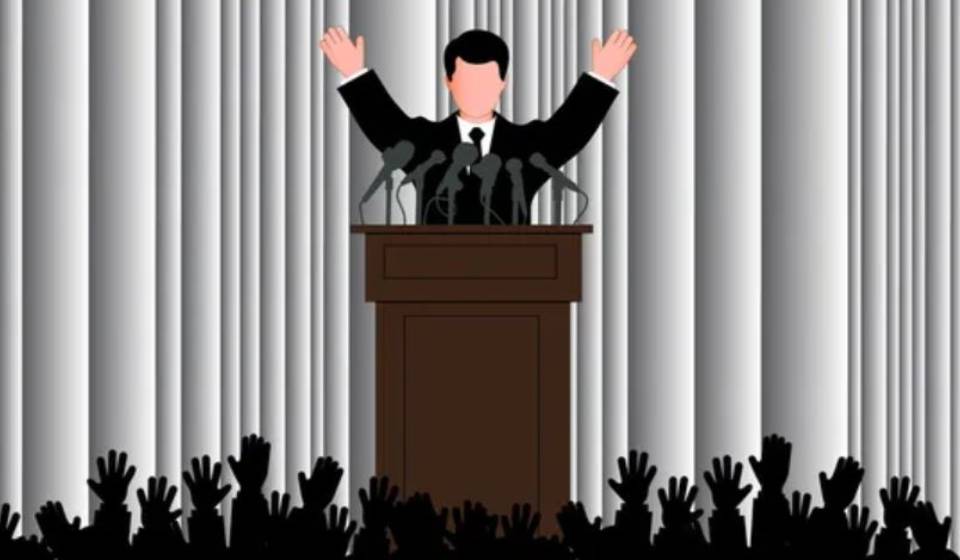Ideology is a powerful tool for packaging a broad political agenda but faith-based fixations almost invariably lead to bad policies
LOS ANGELES – President Donald Trump has declared a national emergency at the southern border of the United States—where there is no emergency at all—in order to access funding to build the wall that he promised his supporters during his 2016 election campaign. It is yet another example of the enduring—and dangerous—tension between reason and ideology in policymaking.
Evidence-based policies, whatever their limitations, always stand a better chance of succeeding than ideologically-driven policies, because they allow for adaptation to changing conditions and new data. Policies born from rigid principles, by contrast, may not be in line with reality at all.
History is littered with the disastrous consequences of choosing ideology over reality. Notably, Adolf Hitler did not believe that science could satisfy the German Volk; Germany needed to conquer a vast Lebensraum, which required turning Wagnerian myths of Teutonic supremacy into policies aimed at imperial domination. Joseph Stalin, the head of another ideologically-based regime, prevailed over the Nazis precisely because he departed from absolute imperatives and based his war objectives on cold, rational self-interest.
As for the US, Trump is hardly the first president to choose faith over reason. Like Trump, President George W. Bush believed that his presidency was part of a divine plan and launched wars in Afghanistan and Iraq as part of what he himself called a “crusade.”
Bush’s 2002 national security strategy was explicitly guided by America’s principles, rather than its interests. Bush’s vice president, Dick Cheney, took that to heart: in 2003, he rejected Iran’s “grand bargain” proposal—which would have ended its nuclear program and subversive foreign policy—on the grounds that the US would not “negotiate with evil.”
Ideology and Politics in Nepal

The Trump administration and, more broadly, the US Republican Party, is upholding this tradition. No amount of evidence showing that immigrants have been central to America’s success will satisfy Trump’s nativist base. Circumventing the US Constitution to build an expensive, ecologically disastrous, and wholly unnecessary wall might.
Likewise, many Republicans, including Trump, continue to deny the threat posed by climate change, rejecting the near-universal scientific consensus. In the past, Trump has even indulged the growing anti-vaccine movement, having tweeted repeatedly about a potential link between vaccines and autism, despite there being zero evidence of such a connection. And Republicans argue that the US, despite being the world’s richest country, cannot afford to ensure universal access to affordable health care, which in any case would amount to a socialist assault on personal freedom.
US Republicans use similar arguments to oppose making higher education more affordable. Student debt, at $1.5 trillion, is now second only to mortgage debt as America’s largest consumer debt category, and yet subsidizing tuition the way mortgages are subsidized is anathema. The same goes for tax policy, with Republicans consistently advocating lower taxes for the highest earners, despite clear evidence that the benefits do not “trickle down” to the rest of the economy.
The US is not alone. In the United Kingdom, the entire Brexit drama has been driven by zealots. Clinging to an anachronistic view of Britain as a major global power, the Brexiteers argue that the European Union is holding the UK back. New trade arrangements with the Commonwealth—which, in their view, is still essentially the British empire—and emerging powers like China would, they argue, allow the UK to reclaim, independently, its rightful place on the world stage.
As ideological zealots are wont to do, the Brexiteers have consistently disregarded the facts. None of them has been able to put forward a coherent or feasible plan for realizing their vision of a full break with the EU. Yet many, such as the Conservative Michael Gove, blithely deride “experts,” as if knowledge and experience were not worth bringing to bear on the issue.
Arguably, Brexit fanaticism among Conservatives—and even the Labour Party’s lack of a strong stance on the issue—stems partly from the UK’s legacy of disengagement from Europe in the 1930s. At that time, many British politicians focused on the threat posed to the UK by the Nazis’ apparent determination to alter the international balance of power.
Today, Europe poses no such threat. Yet the British philosopher John Gray, for example, has portrayed Brexit as the UK’s best defense against a reenactment of Europe’s “dark” dictatorial past. A total collapse of the EU is inevitable, many Brexiteers believe. Leaving Europe to be ruled by some type of Russian-Eurasian empire would be worth it, as long as Britannia were again ruling the seas.
A similar combination of haughty detachment and anachronistic fantasy is displayed by Catalan secessionists toward Spain. Catalans believe themselves to be far more industrious and inventive than—and even racially superior to—the supposedly lazy and unproductive Spaniards. Moreover, they argue, Spaniards are more prone to authoritarianism. And in terms of its commitment to stifling Catalonia’s creativity and entrepreneurship, Spain’s democratic government is little different from Francisco Franco’s regime.
Catalans pride themselves on their seny—ancestral wisdom and level-headedness—and the British on their common sense. But Catalan secessionists and Brexiteers have locked themselves—and their fellow citizens—in an ideological straitjacket.
Ideology is a powerful tool for packaging a broad political agenda, swaying public opinion, and assessing alternative goals. But faith-based fixations almost invariably lead to bad policies, especially at a time of rapid economic change and deepening geopolitical uncertainty. As the American psychologist Abraham Maslow famously put it, “it is tempting, if the only tool you have is a hammer, to treat everything as if it were a nail.” That, as Trump might say with a straight face, is how walls get built.
Shlomo Ben-Ami, a former Israeli foreign minister, is Vice President of the Toledo International Center for Peace
© 2019, Project Syndicate
www.project-syndicate.org








































